Employees are the backbone of any organization, and their contributions are critical to the success and growth of the organization. In the case of Kerala Hindu Society, the employees play a crucial role in the day-to-day operations of the organization, including managing administrative tasks, organizing events, and maintaining facilities.
THANTRI
A Thantri is a chief priest who is highly respected in the Hindu religion, particularly in the southern Indian state of Kerala. Thantris are typically associated with temples, and they play an important role in conducting religious ceremonies and rituals, as well as in providing guidance to the devotees.
The word "thantri" is derived from the Sanskrit word "tantra," which refers to a system of spiritual practices and rituals that are used to connect with the divine. The Thantri is responsible for interpreting the tantric scriptures and for carrying out the rituals and ceremonies that are prescribed in these texts.
In Kerala, Thantris are highly respected and are often regarded as the ultimate authority on matters of temple worship and ritual. They are responsible for performing daily puja (worship) of the temple deities, as well as for conducting important ceremonies such as weddings, funerals, and other religious events.
Thantris are also responsible for ensuring that the temple and its rituals are conducted in accordance with the prescribed rules and regulations. They may work closely with temple administrators and other officials to ensure that the temple is well-maintained and that the necessary offerings and sacrifices are made.
PRIEST
The role of the priest in Sree Guruvayurappan temple is important in maintaining the spiritual and cultural traditions of the temple and providing spiritual guidance to the devotees. Their work requires a deep understanding of the scriptures and the principles of the Hindu religion, as well as the ability to communicate these teachings to the devotees in an accessible and meaningful way. The work of the priests is therefore critical in fostering a sense of community, promoting spiritual growth, and preserving the traditions of the Krishna temple.
SHILPI
A shilpi is a sculptor who creates works of art from materials such as stone, wood, metal, or clay. The term "shilpi" is derived from the Sanskrit word "shilpa," which means art or craftsmanship. In India, Shilpi’s have been an important part of the cultural landscape for centuries and are known for their intricate and detailed work. Shilpi’s use a range of tools and techniques to create their sculptures. They may use chisels, hammers, drills, and saws to carve and shape the materials they are working with, and they may also use molds or casting techniques to create more complex pieces. The process of sculpting can be time-consuming and requires a great deal of patience and attention to detail.
In addition to their technical skills, Shilpi’s often draw on a deep knowledge of mythology, history, and culture to create their works of art. Many of their sculptures depict religious or mythological figures and are created to convey a sense of beauty, spirituality, or reverence.
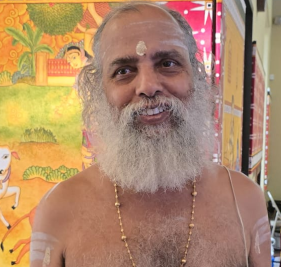
Brahmasri Divakaran Namboothiri
Bhramasri Divakaran Namboothiri is a renowned Hindu Thantri, priest and scholar from the state of Kerala in southern India. He is known for his extensive knowledge of Vedic scriptures, and Thantra. Diwakaran Nampoothiri was born into a family of priests and scholars, and he began his formal education at a young age. He studied the Vedas, Upanishads, and other sacred texts under the guidance of his father and other eminent scholars
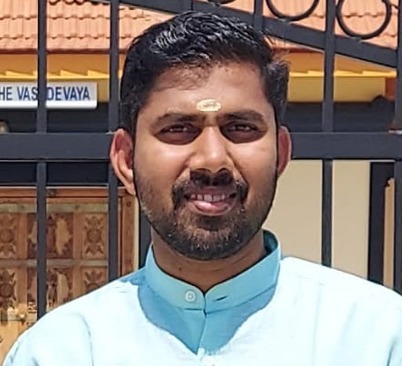
Sooraj Mangathaya
Sooraj Mangathaya is one priest in Sree Guruvayurappan Temple. Sooraj is a scholar from Thantri Peetam. The Thantri Peetam is responsible for ensuring that the temple rituals are performed correctly and in accordance with the Vedic traditions. Thantri Peetam is a traditional institution in Kerala, India, that is responsible for overseeing the religious and cultural practices of the Hindu temples in the state.
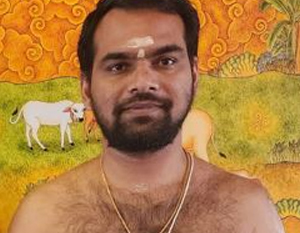
Chandrasekaran Ammangod Mana
Chandrasekharan Ammangod is also a priest with rich vedic experience. He is a Sanskrit scholar. Chandru is from Ammangod Mana. A Hindu priest performs worship services (generally referred to as puja) which include ceremonies and rituals. Typical Hindu rituals and ceremonies may include daily deity worship (ie. archana, homa or aarti), special deity celebrations.
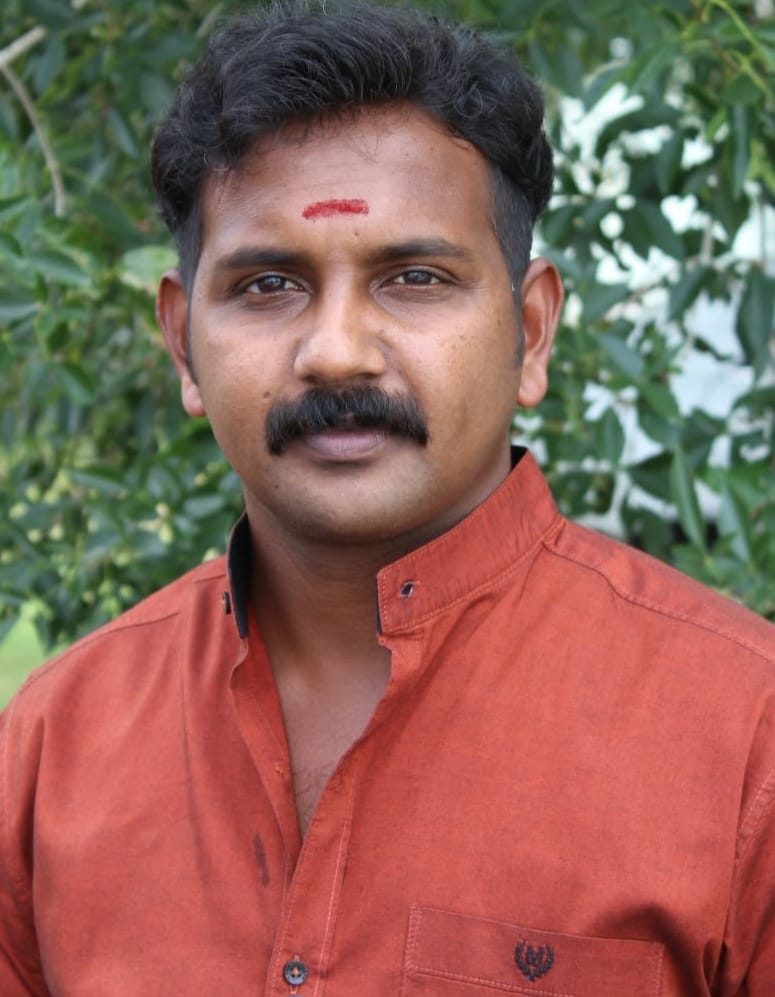
Sreejith Marar
Sreejith is a temple musician at Sree Guruvayurappan Temple, where he performs the traditional temple Sopanam music. In addition to his musical duties, he also oversees the upkeep of the temple and ensures that its customs are followed. With his expertise in playing the Idakka, Chenda, he conducts regular classes for interested devotees on behalf of the temple.
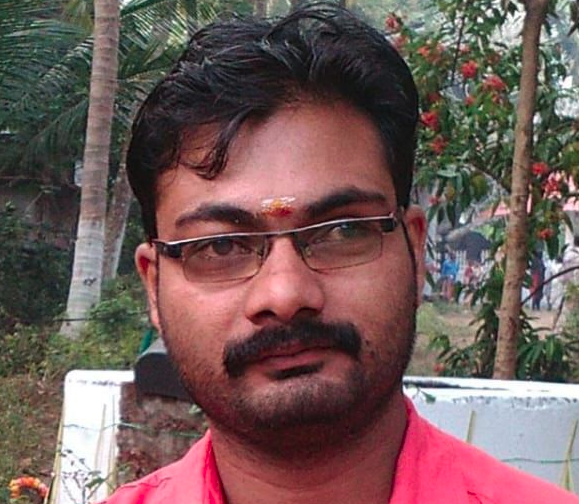
Sanil Palakkat
Sanilis a well known shilpi and a specialist in Vasthu Shastra. Vastu Shastra is a traditional Indian system of architecture and design, which aims to create living spaces that are in harmony with the natural environment and promote physical and mental well-being. The term "vastu" means dwelling or building, while "shastra" means knowledge or teaching.Vastu Shastra is based on the principles of the five elements (earth, water, fire, air, and space) and their interaction with the environment.
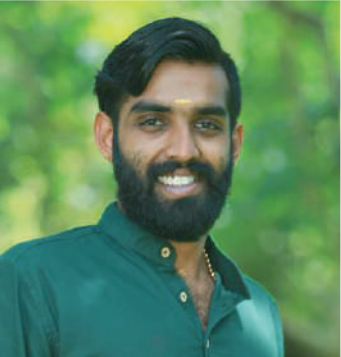
Alok Aryan
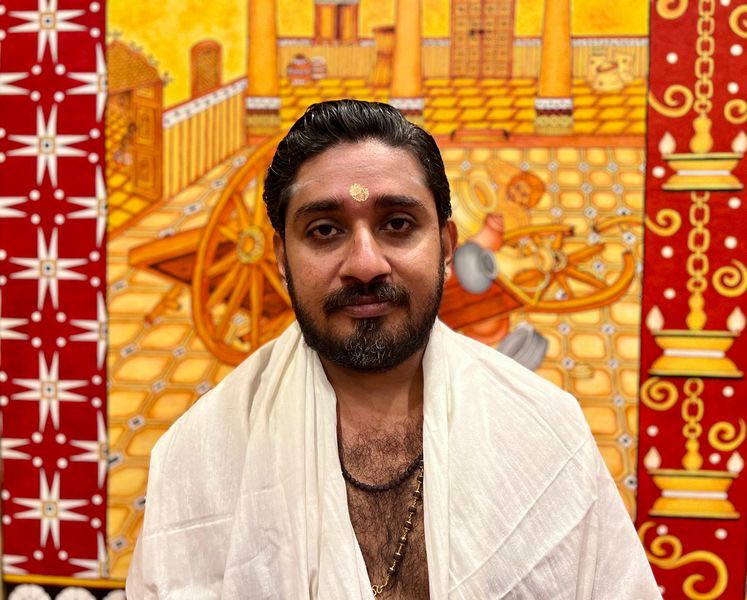
Devadas Namboothiri
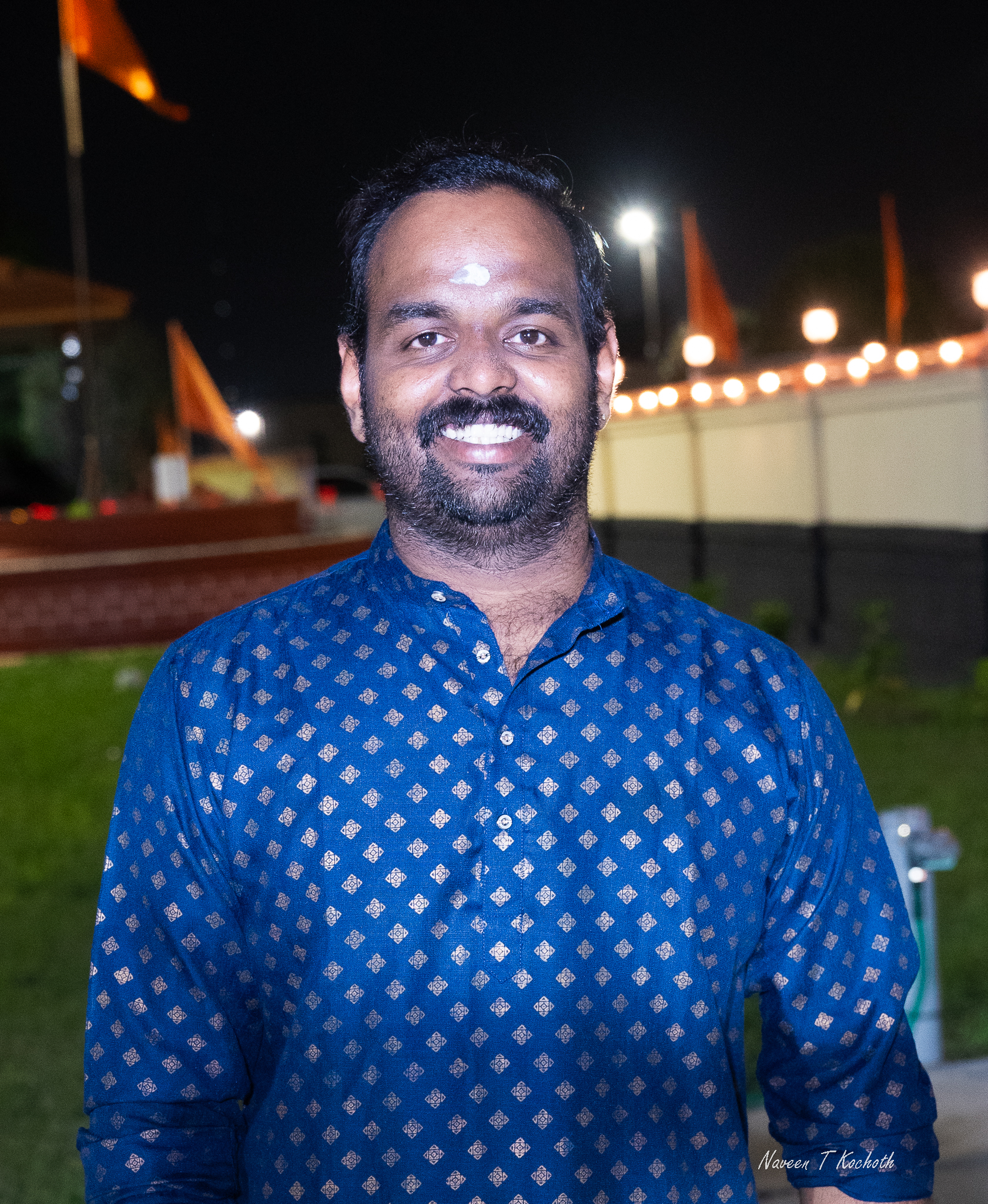
Krishna Sharma
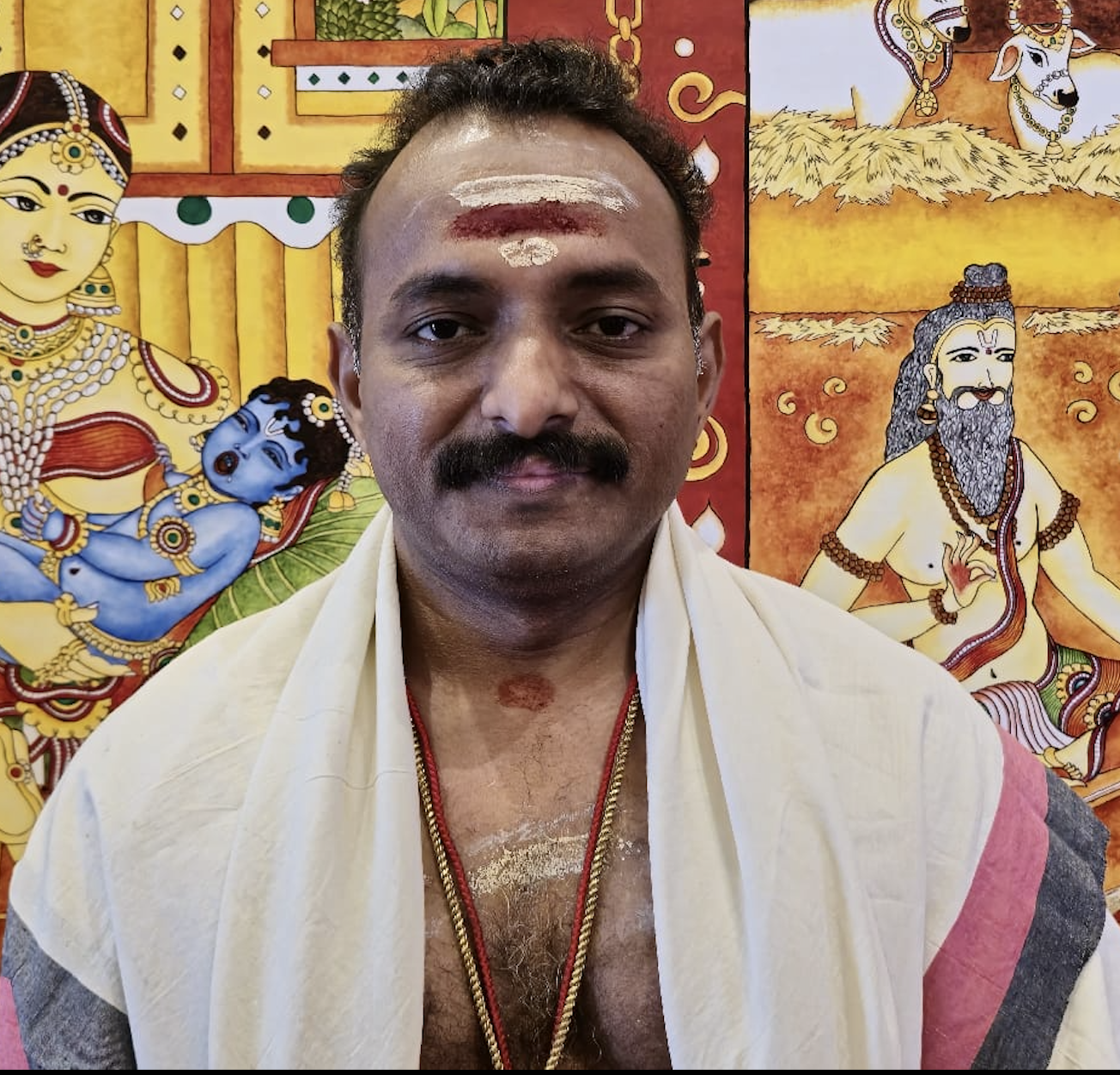
Manoj Marar
Manoj Marar began his journey in the field of temple music at the age of 10 as a disciple of Gurunathan Palai Rajan Marar. He made his debut in Chenda and started serving in the temple music arena. He trained under the guidance of Veliyannoor Parameswara Marar and Pala Sashi Marar in traditional temple performances such as Kshetra Adiyantiram, Kazhakam, Marapani, and Kalam Ezuthupattu. Manoj further honed his skills in Panchavadyam and Thimila from Chottanikkara Nandappa Marar and Ramapuram Sreekumar. He handles instruments like Chenda and Thimila in Chendamelam and Panchavadyam. With 35 years of experience in Sopanasangeetham, Marapani, temple Kazhakam, and Kalam Ezuthupattu, Manoj has trained over 150 disciples, contributing richly to the preservation and propagation of temple music traditions.

